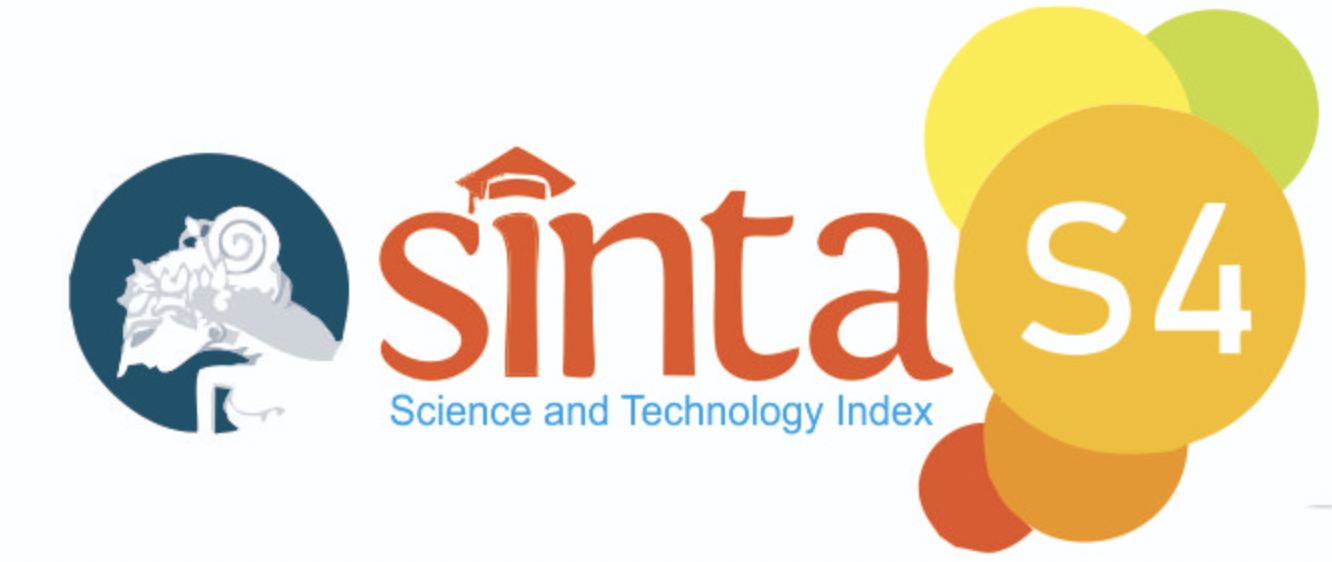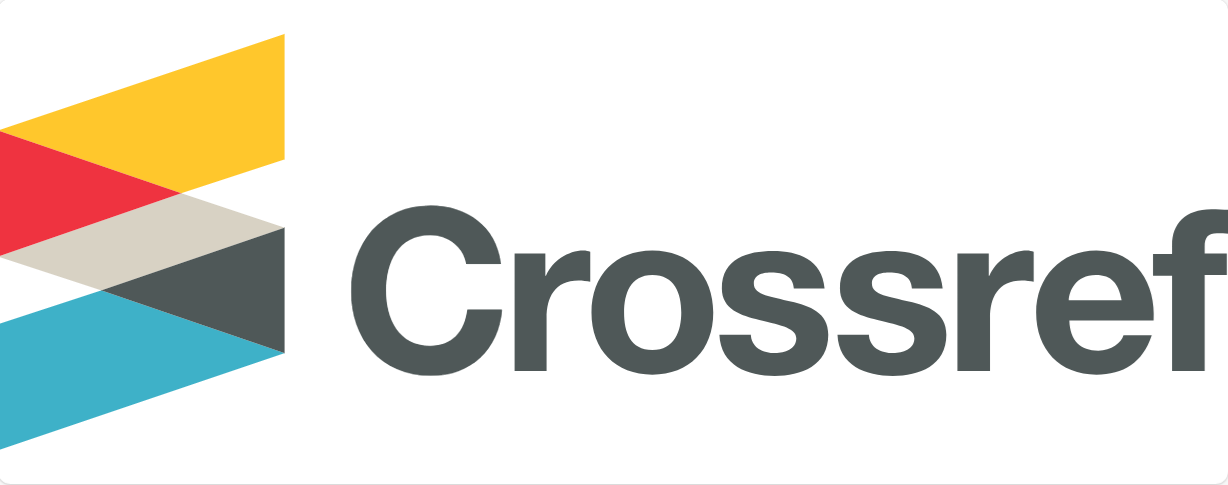Abstract
The Dewey Decimal Classification (DDC) is a widely implemented classification system in most libraries. However, its usage has declined over the past four decades, and libraries are advised to undergo reclassification. Conversely, it is recognized that the implementation of specialized classification systems significantly impacts information retrieval. Therefore, the aim of this study is to elucidate the concept and methodology behind the integration of bespoke categorization frameworks within diverse libraries across Indonesia over the past decade. This study employs the Systematic Literature Review (SLR) and the Population, Intervention, Comparison, Outcome, and Context (PICOC) framework to analyze ideas, schemes, processes, and challenges in implementing specialized classification systems. Scientific articles sourced from Google Scholar were utilized for the review. Ten scientific articles were selected for analysis after successfully passing the literature quality assessment stage. The data were examined and analyzed by describing the research content, addressing issues in its formulation, and drawing conclusions from the scientific articles. According to the study's findings, the development of a specialized classification system is contingent upon the interpretation of ideas, the nature of collections, and the complexity of their contents. The primary distinction between utilizing a specialized classification system and a general classification system lies in the ease of the process. The application of a specialized classification system in various Indonesian libraries is based on ideological, practical, and empirical considerations.
Bahasa Abstract
Dewey Decimal Classification (DDC) menjadi sistem klasifikasi populer yang banyak diterapkan di sebagian besar perpustakaan, akan tetapi penggunaannya telah menurun dalam empat dekade terakhir dan perpustakaan disarankan agar melakukan reklasifikasi. Di sisi lain, diketahui bahwa penerapan sistem klasifikasi khusus memberikan pengaruh signifikan pada temu kembali informasi. Oleh karena itu, penelitian ini bertujuan untuk menyajikan gagasan dan proses penerapan sistem klasifikasi khusus di berbagai perpustakaan di Indonesia dalam satu dekade terakhir. Penelitian ini menggunakan SRL dengan kerangka PICOC untuk menganalisis gagasan, skema, proses dan kendala yang dihadapi dalam penerapan sistem klasifikasi khusus. Tinjauan dilakukan pada artikel ilmiah yang diperoleh dari Google Scholar. Setelah melalui tahapan uji kualitas literatur, diperoleh 10 artikel ilmiah untuk dianalisis. Data ditinjau dan dianalisis dengan menjabarkan isi penelitian, pemecahan masalah dari rumusan penelitian dan penarikan kesimpulan yang terdapat pada artikel ilmiah. Hasil penelitian menemukan bahwa gagasan sistem klasifikasi khusus dikembangkan berdasarkan: interpretasi hasil pemikiran, jenis koleksi, dan kompleksitas isi koleksi. Penerapan sistem klasifikasi khusus tidak jauh berbeda dengan sistem klasifikasi secara umum, dengan proses yang lebih sederhana. Penerapan sistem klasifikasi khusus yang dilakukan oleh berbagai perpustakaan di Indonesia dilandaskan pada gagasan ideologis, praktis, empiris.
References
Adrian, C., Abdullah, R., Atan, R., & Jusoh, Y. Y. (2016). Model for big data implementation: A systematic literature review. International Journal of Advances in Soft Computing and Its Applications, 8(3), 175–192.
Alamsyah, F. (2017). Analisis sistem klasifikasi bahan pustaka di Perpustakaan Jurusan Ortotik Prostetik Politeknik Kesehatan Kementrian Kesehatan Jakarta I. Bachelor's thesis, UIN Syarif Hidayatullah Jakarta: Fakultas Adab dan Humaniora, 2017). Retrieved from: https://repository.uinjkt.ac.id/dspace/handle/123456789/36660
Anderson, T., et al, (2019). The five laws of OER: Observations from Ranganathan. Journal of Librarianship and Scholarly Communication, 7 (general issue), eP2299. DOI: 10.7710/2162-3309.2299
Anggraeni, D. B., Widyastuti, W., Rahmawati, F. P., & Aditama, M. G. (2021). Pengembangan Sistem Klasifikasi Kepustakaan dengan Dewey Decimal Classification (DDC). Buletin KKN Pendidikan, 3(2), 152-160. DOI: 10.23917/bkkndik.v3i2.15734
Anisah, M. (2018). Penerapan Sistem Klasifikasi Artificial Dalam Temu Kembali Informasi (Studi Pada Perpustakaan Anak Bangsa). Bachelor's thesis, Universitas Brawijaya Malang: Fakultas Ilmu Administrasi. Retrieved from: http://repository.ub.ac.id/id/eprint/165880/
Chan, L., M., & Salaba, A. (2015). Cataloging and Classification: An Introduction. Rowman & Littlefield Publisher
Clarke, R., I. (2021) Library classification systems in the U.S.: Basic ideas and examples, Cataloging & Classification Quarterly, 59(2-3), 203-224, DOI: 10.1080/01639374.2021.1881008
Cruz-Benito, J. (2016). Systematic literature review & mapping. GRIAL research group. DOI: 10.5281/zenodo.165773
Endarti, S. (2022). Perpustakaan sebagai tempat rekreasi informasi. ABDI PUSTAKA: Jurnal Perpustakaan dan Kearsipan, 2(1), 23-28.
Fadilla, N. (2021). Komparasi Pemikiran Berwick Sayers Dan Mary Mortimer Tentang Sistem Klasifikasi Perpustakaan. Jurnal Pustaka Ilmiah, 6(2), 1065-1075. DOI: https://doi.org/10.20961/jpi.v6i2.46421
Faida, U. C. (2016). Penggunaan Sistem Klasifikasi Australian and New Zealand Standard Research Classification (ANZSRC) dalam Pengolahan Tugas Akhir. Bachelor's thesis, Universitas Brawijaya Malang: Fakultas Ilmu Administrasi. Retrieved from: http://repository.ub.ac.id/id/eprint/118766/
Haddaway NR, Collins AM, Coughlin D, Kirk S (2015) The Role of Google Scholar in Evidence Reviews and Its Applicability to Grey Literature Searching. PLoS ONE, 10(9): e0138237. DOI:10.1371/journal.pone.0138237
Halevi, G., Moed, H., Bar-Ilan, J. (2017). Suitability of Google Scholar as a source of scientific information and as a source of data for scientific evaluation—Review of the Literature. Journal of Informetrics,11 (3),823-834. DOI: https://doi.org/10.1016/j.joi.2017.06.005.
Harahap, B. L. H., & Husna, J. (2018). Penerapan Sistem Klasifikasi Mandala di Perpustakaan Gelaran Indonesia Buku Yogyakarta. Jurnal Ilmu Perpustakaan, 7(1), 181-190. https://ejournal3.undip.ac.id/index.php/ji p/article/view/22829
Hoffman, G. L., & Snow, K. (2021). Cataloging and classification: Back to basics: Introduction. Cataloging & Classification Quarterly, 59(2-3), 73-76. DOI: 10.1080/01639374.2021.1883174
Kamus Besar Bahasa Indonesia Online. (2022). Kendala. Accessed on 15 November 2022, Retrieved from: https://kbbi.kemdikbud.go.id/entri/kendala
Laila, R. (2017). Katalogisasi dan Klasifikasi: Peranannya dalam sistem temu kembali informasi “information retrieval system” pada Perguruan Tinggi. Retrieved from: http://idr.uin-antasari.ac.id/id/eprint/7582
Lund, B., & Agbaji, D. (2018). Use of Dewey decimal classification by academic libraries in the United States, Cataloging & Classification Quarterly, 56(7), 653-661, DOI: 10.1080/01639374.2018.1517851
M, Rasnawati. (2016). Analisis Sistem Pengklasifikasian Koleksi di Perpustakaan Ibnu Rusyd Pesantren Modern Pendidikan Al-Qur'an IMMIM Putra Makassar. Bachelor's thesis, Universitas Islam Negeri Alauddin Makassar: Fakultas Adab dan Humaniora. Retrieved from: https://core.ac.uk/reader/198217460
Mei, Q., & Radev, D. (2016). Information Retrieval-Chapter 37. In Mitkov, Ruslan (Ed.). The Oxford Handbook of Computational Linguistics (2nd ed), 906–933. Oxford University Press
Mengist, W., et al (2020). Method for conducting systematic literature review and meta-analysis for environmental science research. MethodsX, 7. DOI: 10.1016/j.mex.2019.100777
Murtando, M. & Masruri, A. (2021). Penerapan sistem klasifikasi khusus di perpustakaan divisi knowledge management PT. Pendidikan Maritim dan Logistik Indonesia (IPC Corporate University). Tibanndaru: Jurnal Ilmu Perpustakaan dan Informasi, 5 (2), 213-232. DOI: 10.30742/tb.v5i2.1592
Noviani, M. (2013). Pengaruh sistem klasifikasi mandiri terhadap hasil temu balik informasi pemustaka pada layanan skripsi dan tugas akhir perpustakaan Sekolah Tinggi Agama Islam Negeri (STAIN) Pekalongan. [Unpublished S.Hum thesis]. Universitas Diponegoro.
Nugroho, D. A. (2017). Best practice book leveling classification oleh room to read di SD N Sukorame Gresik. Conference on Language and Language Teaching FKIP Universitas Tidar, Oktober 2017
NS, I., et al. (2018). Pedoman pengolahan bahan perpustakaan. Perpustakaan Nasional Republik Indonesia.
Poerwadhy, M. R. (2022). Pengolahan Koleksi Lokal Konten di Perpustakaan Khusus BPPT Republik Indonesia. Diploma’s thesis, Universitas Diponegoro Semarang: Sekolah Vokasi. Retrieved from: https://eprints2.undip.ac.id/id/eprint/13059/
Prasetyo, D. C. (2015). Penerapan Sistem Klasifikasi FIAF Classification Scheme for Literature on Film and Television di Perpustakaan Sinematek Indonesia. Bachelor’s thesis, UIN Syarif Hidayatullah Jakarta: Fakultas Adab dan Humaniora. Retrieved from: http://repository.uinjkt.ac.id/dspace/handle/123456789/29381
Saputro, B. I. (2017). Penerapan sistem klasifikasi perpustakaan arkeologi di Perpustakaan Balai Arkeologi Daerah Istimewa Yogyakarta. Berkala Ilmu Perpustakaan dan Informasi, 13(2), 107-116. DOI: 10.22146/bip.23453
Shaffril, M. H. A., et al. (2021). The ABC of systematic literature review: the basic methodological guidance for beginners. Quality and Quantity, 55(4), 1319-1346. DOI: 10.1007/s11135-020-01059-6
Sulistyo-Basuki. 1991. Pengantar Ilmu Perpustakaan. Jakarta: Gramedia Pustaka Utama.
Syahdan, S., Ridwan, M. M., Ismaya, I., Aminullah, A. M., & Elihami, E. (2021). Analisis Penerapan Sistem Klasifikasi DDC dalam Pengolahan Pustaka. Jurnal Edukasi Nonformal, 2(1), 63-80. Retrieved from: https://ummaspul.e-journal.id/JENFOL/article/view/1669
Taylor, A.G., & Joudrey, D.N. (2018). The organization of information: Fourth Edition. Libraries Unlimited.
Turang, A. J., Golung, A. M., & Pasoreh, Y. (2023). Manfaat Klasifikasi Bahan Pustaka Di UPT Perpustakaan Untuk Temu Kembali Informasi Bagi Pengguna Khususnya Mahasiswa UNSRAT. ACTA DIURNA KOMUNIKASI, 5(1), 6. Retrieved from: https://ejournal.unsrat.ac.id/v3/index.php/actadiurnakomunikasi/article/view/47378/42149
Wikipedia (2023). Etiologi. Retrieved from: https://id.wikipedia.org/wiki/Etiologi
Recommended Citation
Nurhayati, Euis Sri and Mayesti, Nina
(2023)
"Tinjauan Literatur Sistematis Terhadap Penerapan Sistem Klasifikasi Khusus Di Perpustakaan,"
Jurnal Ilmu Informasi, Perpustakaan, dan Kearsipan: Vol. 25:
No.
2, Article 2.
DOI: 10.7454/JIPK.v25i2.1093
Available at:
https://scholarhub.ui.ac.id/jipk/vol25/iss2/2
Included in
Archival Science Commons, Collection Development and Management Commons, Information Literacy Commons







